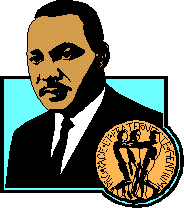Ariz. Ban on Ethnic Studies Divides Educators
Mr. BANKS: Well, I was saddened, and I felt it was very unfortunate because it was actually based upon misconceptions about what ethnic studies was all about.
It was based upon the assumption that ethnic studies was divisive and that ethnic studies promoted ethnic pride over unity and that ethnic studies--actually, I'm one of the founders of the movement in schools. Ethnic studies is really about bringing us together, bringing different groups together.
It's based upon deep, historical knowledge pioneered by people such as John Hope Franklin and his famous book, "From Slavery to Freedom." It's based upon ethnic studies such as the historian Nell Irvin Painter has published in her wonderful new book, "The History of White People."
So I think that I was saddened by it, because we've worked in ethnic studies for 40 years, and there's still widespread misconception about ethnic studies. That's why it made me sad.
CONAN: Well, there may be misconceptions, but I wonder, some people would argue that based on what they can see from test results, most high school students don't understand American history very well to begin with. Shouldn't we concentrate on that as opposed to ethnic studies?
Mr. BANKS: Well, it seems to me that's a false dichotomy, to separate American history from ethnic studies. Ethnic studies is a way of correcting inaccuracies in American history. It's a way of compensating for the way that blacks or Latinos and American Indians and other groups have been left out of American history.
So it's not about distorting American history, it's about correcting American history. So we need both--both American history in the schools, as well as ethnic studies, which gives an opportunity to have more depth and really teach the accuracy of America.
And if there's any doubt about the need, another important goal of ethnic studies is to improve the racial attitudes of black and white children. And if there's any doubt that's needed, if any of our listeners have seen the reaction of white students--young students, preschool students--to black and white dolls in the new CNN series about how they have very negative attitudes toward black dolls--even though the attitudes of black kids have improved, even though black kids show a white bias--but they've improved since the studies by Kenneth Clark.
So another important goal of ethnic studies is to improve racial attitudes, and if there's any doubt that we need ethnic studies, take a look at the CNN series on how white children and black children feel about black dolls.
I think it is that is the real telling of American history. But I think that's very different than the kind of thing that was being promoted, for example, in the Tucson school system.
One of the goals of the Mexican-American studies program in Tucson was to promote Latino critical race pedagogy. Well, you know, for non-academics, that probably just sounds like gobbledygook, but the whole idea of promoting race pedagogy I think strikes most Americans as very un-American.
The whole point of the civil rights movement, the whole point of the inclusive of everyone in our society was to move race to the back burners, no longer to have race what infused our thinking, and yet here you have, in a public school system in Tucson, the whole idea of critical race pedagogy being promoted.
CONAN: And James Banks, we're going to give you 30 seconds for reply. We've got to take a break, and then we're going to get callers involved. Go ahead.
Mr. BANKS: The to teach critical thinking about race is essential, because what the research shows, that if we don't talk about race, if we don't teach race--about race--we perpetuate current racist notions. So kids need to think critically about race and to be taught to examine race.
There are several questionable assumptions in Chavez's position:
1) That "race pedagogy," whatever that gobbledygook means, is harmful.
2) That there's some objective way to distinguish between "harmful" race pedagogy and other forms of racial teaching. This is like distinguishing between "good" and "bad" criticism of the government. It can't be done in any impartial or unbiased way. One person's patriotism is another person's sedition.
Chavez's attitude would have a chilling effect on any ethnic studies. Few schools and teachers are likely to teach classes that the powers-that-be deem "un-American." They'll cut back or cancel these classes rather than risk budget or job cuts.
Chavez opposes racial education
In fact, Chavez opposes more than the teaching of racial superiority, separatism, or pride. She opposes the teaching of racial studies, period. She makes this clear when she says things like wanting to "move race to the back burners."
Would Chavez be okay with a ban on European or British Studies? No, of course not. She doesn't want to put race on the back burner. She wants to put every race but whites on the back burner. To her and other conservatives, white history is the norm and other versions of history are suspect.
According to Chavez, if a class puts whites on the back burner and other ethnicities up front, it's bad. Better not to teach anything but the standard American history where minorities fit into the dominant white narrative. Best of all, don't teach anything about race, including our shameful history of genocide, slavery, and discrimination.
For more on the subject, see Mainstream History = Pro-White Propaganda and Native Lit Class Threatens Arizona.
Below: Teach Martin Luther King Jr. but put race on the back burner? Can't be done.

